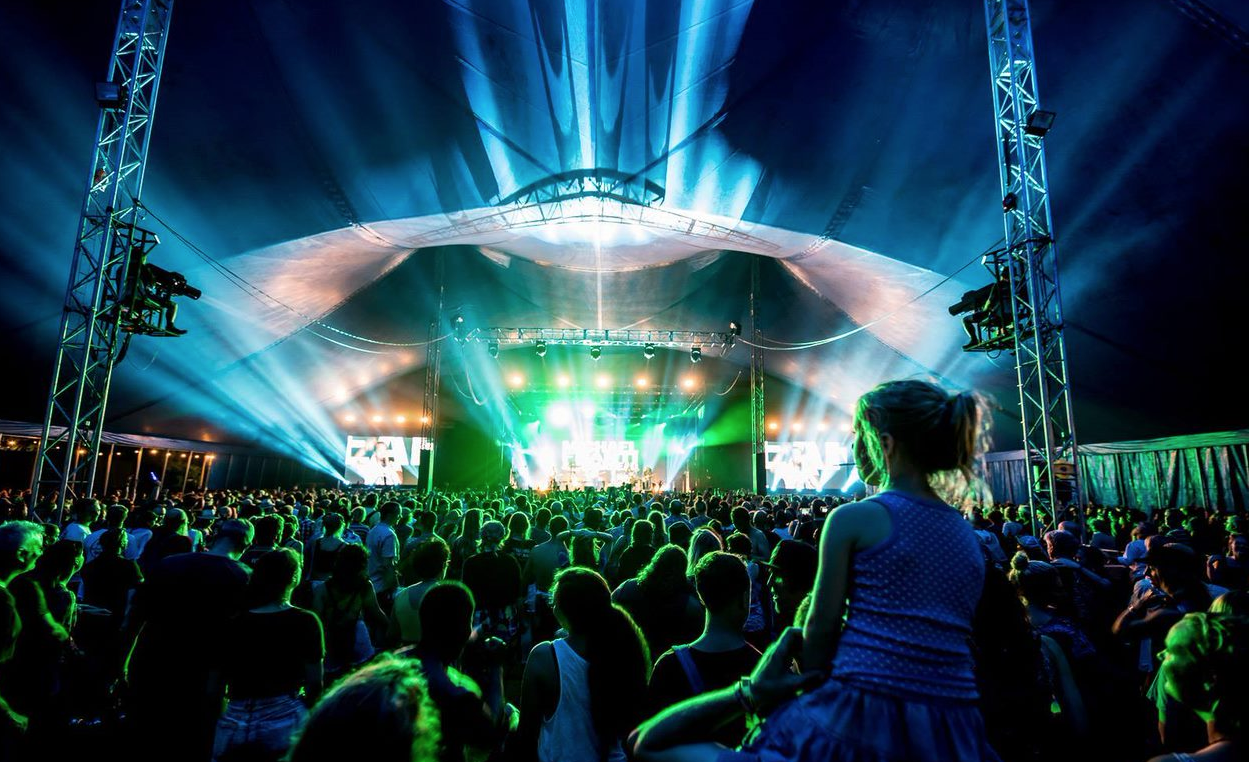What will it take for the festival scene to return?

Festival organisers, promoters and punters are keen to see the scene reignited and pumping once more, but how will we get there? TMN’s Christie Eliezer speaks to industry heavyweights Peter Noble, Thea Jeanes-Cochrane and Jon Corbishley to uncover their plans for the future, and how they’re navigating rules and regulations which strip back the heart and soul of live music festivals.
The optimism the Australian live sector felt at the beginning of 2021 didn’t take long to evaporate as the coronavirus continued casting its long shadow.
With the festival sector’s contribution to the national economy dropping by 86% last year from $2.6 billion in 2019, according to the AFR, it’s little wonder the Australian Festival Industry Conference in September is devoting much attention to the
COVID factor.
Thea Jeanes-Cochrane, director of Cochrane Entertainment, will keynote on how the pandemic has changed us.
Bluesfest Group chairman Peter Noble OAM will talk on the true cost of the event’s cancellation, and joins the panel on COVID-19 site planning & safety for festivals with Jon Corbishley, chair of the Australian chapter of the Event Safety Alliance and director of his company The Safety Officer.
From an industry perspective, two things must be done for this summer’s festivals to rebound – both involving Federal and State Governments.
One is to create a consistent set of national rules for travelling festivals to plan and invest.
Achieving this would be “enormously challenging …and very very difficult,” suggests Jeanes-Cochrane, citing the way states handled post-COVID event issues differently.
For example, WA’s current rule of a 2,500 cap at an outdoor show is financially unviable.
“As a producer or a promoter, when you’re planning these things out, it’s economy of scale.
“You start to make your money in the last 30% of the house, or the last few rows of seats if you’re talking about concert tours.
“You need to get a minimum number of shows before you recoup the investment you’ve made to your artist, to production or your creative team.”
For Noble, the much-discussed insurance issue has a number of elements.
These include the business interruption fund, the policy to protect an event, claiming insurance from underwriters similar to the Federal Government’s 2003 Australian Reinsurance Pool Corporation to underwrite terrorism policies, and being able to
borrow against equity.
“Because banks aren’t lending, and an insurance policy goes a long way,” Noble notes.
Bluesfest’s last-minute cancellation by the NSW health minister and premier’s chief of staff – based on a single positive case who lived 30 minutes from the site and who had no ticket to the festival – “was made on cautionary reasons, not on any real discussion where I could have responded”, he says.
Some ministers were embarrassed enough by the close-down that the Government promised a more common-sense approach and began discussions with the live sector on setting up a sensible policy.
Bluesfest was compensated – “I can’t give you the figure because there’s a non- disclosure clause” — with an advance that kept its doors open and enabled some musicians to be paid.
The post-COVID festival will be zones with their own bars and toilets, and QR codes and apps for quick detection to close down a section.
“This will be with us for a long long time,” says Corbishley. “The most difficult thing is what we want to achieve is the opposite of what a festival is about.
“My job is to manage crowds away from front of the stage – and that’s exactly what the artist wants to see, and what the audience has the maximum enjoyment from.”
Jeanes-Cochrane believes that the hybrid model is going to be the norm for a while.
“For some events it keeps them relevant, and a branding and networking experience.
“You can’t replace live, but the virtual thing is interesting with animation imagery and avatars interacting with audiences.
“Teenagers think it’s quite cool whereas [older fans] would probably say ‘I’d rather go and drink some beer and feel the grass under my feet’. For them, that experience is visceral.”
For Noble, nothing can replace the live experience, and Corbishley emphatically agrees.
“Absolutely. It’s the greatest atmosphere in the world,” Corbishley says.
“Once vaccinations are the norm, you may even see moshpits return.
“Part of my role at a festival is to gauge the mood of the crowd by chatting to them. They’re so excited, they’re going home at the end of the night singing.
“I had that same experience when I was 15 and went to the Isle of Wight festival in 1970 with Jimi Hendrix and The Who and absolutely nothing has changed.”
The Australian Festival Industry Conference will take place on the Gold Coast on September 1 to 3. More information and tickets are available here.






























